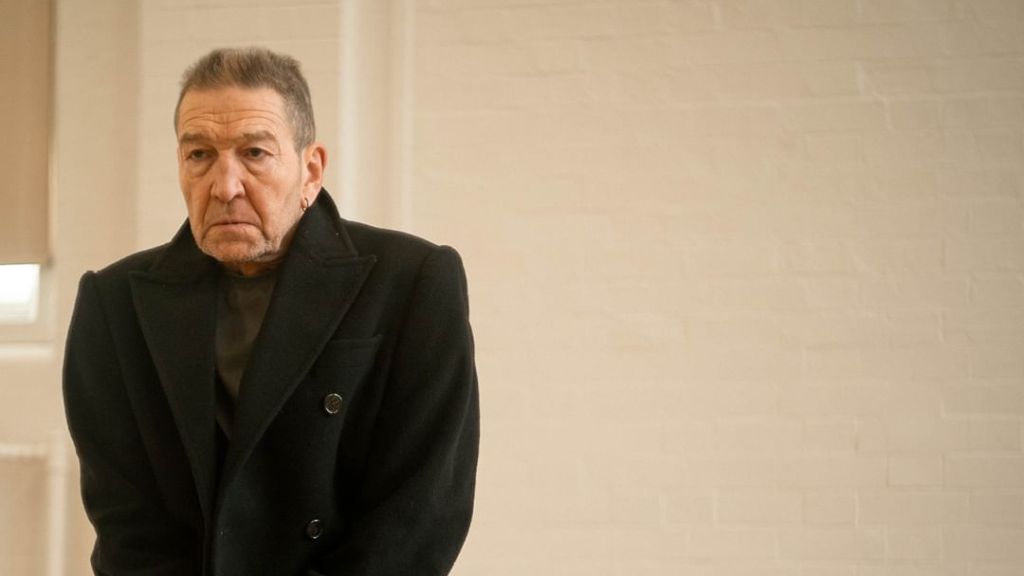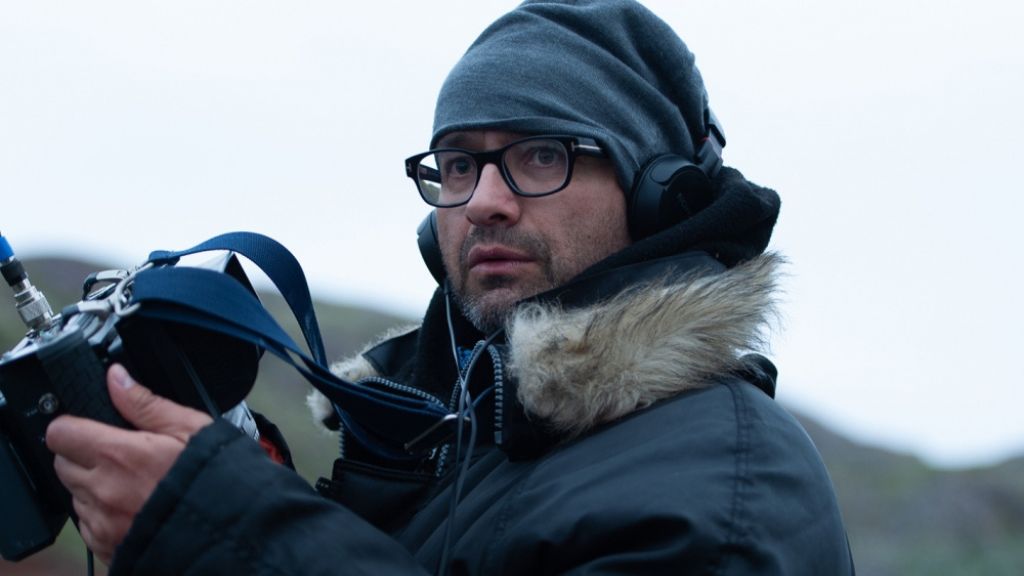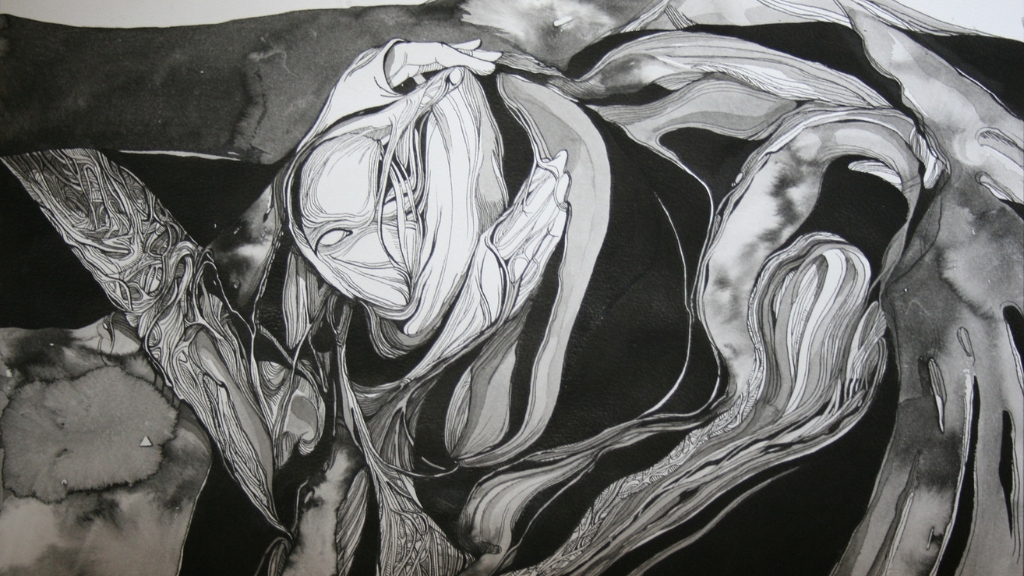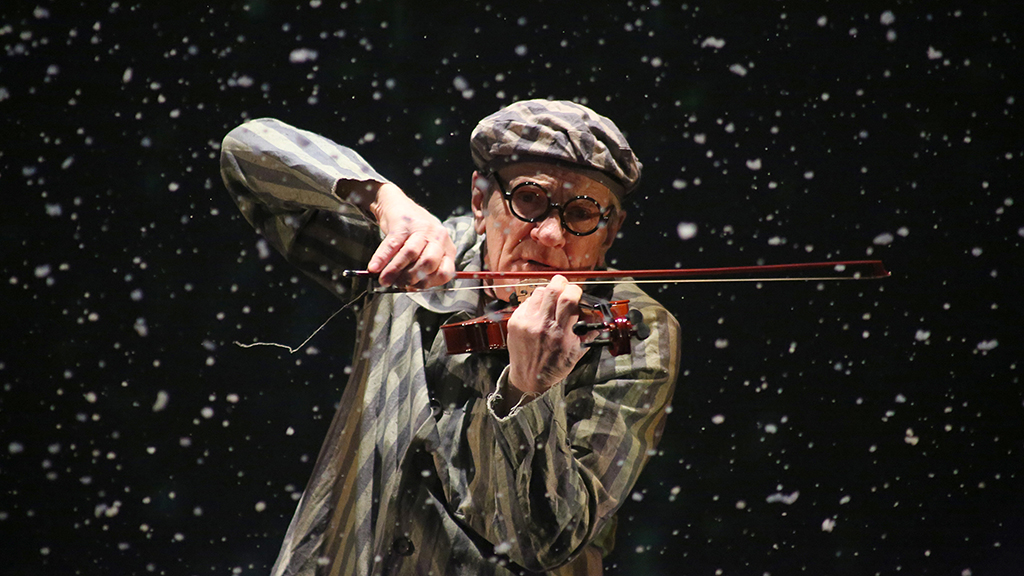
Mikhail Reznikovych: “Even now, in wartime, people visit the theatre”
Despite the difficult times of the war, cultural life in Ukraine does not stop. People continue to go to concerts, exhibitions, cinemas and theatres, just as performers and actors continue to ply their trade. Margarita Bagrova, editor-in-chief of the Afisha.London magazine, spoke with the artistic director of the Lesya Ukrainka Theatre, Mikhail Yuryevich Reznikovych about past London tours, critical reviews, theatre during the war, as well as the company’s new play, False Note, premiering in London on the 26th of November.
— Mikhail Yuryevich, we are meeting in London for the second time and once again it is to bring great news — the Lesya Ukrainka Theatre will be arriving on tour. In 2015, you brought four performances that the London public still recalls with awe. What are your memories of those tours?
— Indeed, seven years ago we had a two-week run at the St. James Theatre, where we staged four performances. That time we brought almost the entire troupe. We took the tour very seriously since English theatre is considered the best in Europe. It was important for us to match this standard. The first performance was based on Turgenev’s play The Freeloader, about the inner conflict of a small man who is humiliated. The day after the performance, I was pleasantly surprised to learn that the production had been awarded four stars.
“Given the bleakness of the news coming out of Ukraine, it is a pleasant shock to find a short season celebrating the country’s culture taking place at St James’s theatre, London. There are films and a photography exhibition, but the centrepiece is a group of four plays from the repertory of Kiev’s National Academic Drama Theatre.” (Michael Billington, The Guardian)
The second performance was a play titled My Mocking Happiness, based on the letters of Anton Pavlovich Chekhov. This play had been performed in our theatre for 50 years and, remarkably, the actors who played the roles of Chekhov, his older brother Alexander and Olga Knipper, played them for the entire 50-year run.
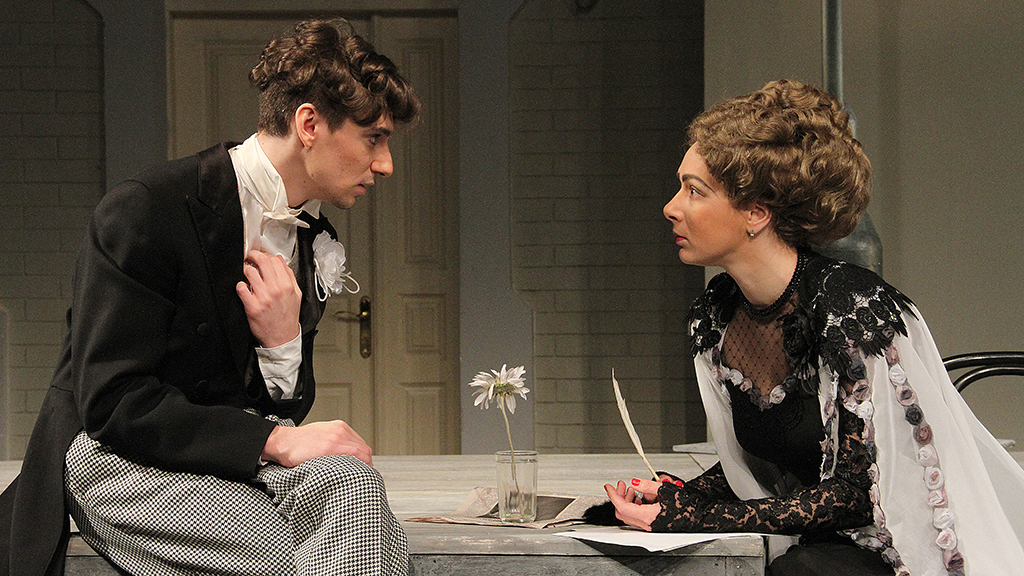
Photo: play “Life’s Little Nothings”
The third performance was Life’s Little Nothings, based on Chekhov’s stories, while the fourth was a production based on Lesya Ukrainka’s drama The Stone Lord, which we called Captivated by Passions. Our theatre bears the name of Lesya Ukrainka, because it was he who first staged this performance in 1938. All in all, we have very warm memories of that London tour.
— You have already mentioned the positive reviews from British critics. Your first tour happened at the beginning of the theatre season; a time when many performances jostle for critics’ attention. Why was it important for your already popular theatre to get reviews from British critics? Perhaps you can recall any specific reviews?
– Here, in London, the theatre critics are of a very high level. Their independent articles are well-balanced and professional. In their reviews there is no crazy dogmatism, which is the case with critics in Russia and Ukraine. Having read the reviews of my performances, I felt that they were able to ascertain the director’s intention. This is infinitely important.
“What a joy to see a play that breaks through the neat conventions of English drama and in which comedy and tragedy exist together in the same moment, with actors who can fill the performing space with large, yet detailed performances.” (Kate Beswick, Londontheatre1.com)
— You mentioned that you consider the English approach to theatre to be the best, but we don’t have a repertory theatre here, unlike Russia or Ukraine. Do you think there is a connection here?
— Our theatre toured different countries: Germany, Poland, the Czech Republic, the Netherlands and Israel. It is widely accepted that the English approach to theatre today is the best in Europe precisely because of its ability to penetrate into human psychology, as well as the nature of internal and external communication it fosters between actors. English actors have a powerful theatrical technique; and this is what we lack.
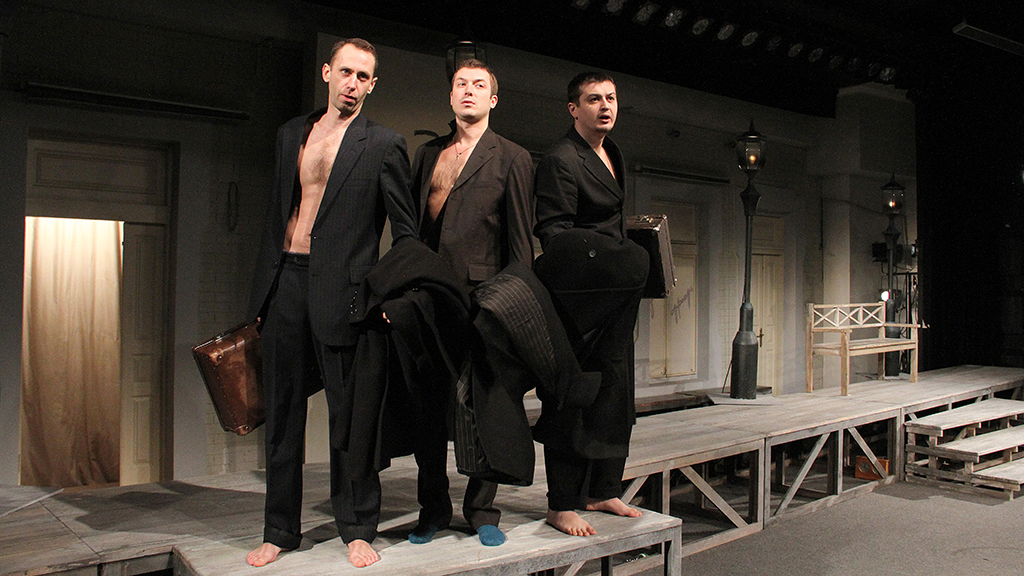
Photo: play “Life’s Little Nothings”
— English actors rehearse very little, by comparison; they have short and intense rehearsals right before shows. What do you, as a practicing teacher, think about this?
— This also only speaks to embedded professionalism. Our repertory theatre has its advantages. For example, an actor can creatively exist in it for decades. Develop themselves. In England, conditions are more ruthless, so theatres select ready-made, super-professional artists for their productions. We combine work on the performance with teaching; we help artists to mature, to open up. They don’t do this in England. A performance is staged here in 8-10 weeks because the actors can do it. And those who cannot, are not hired. Nobody is carrying anyone.
Read more: Queen and Russia: visits, finery and a lunch with a cosmonaut
— What is life like, for the Theatre, during the war? Do you keep staging productions? Who goes to the shows?
— Of course, it’s not easy. The main thing that happened during the war was the exclusion of the Russian language. If earlier our performances were mainly in Russian, now all, except for one, are put on in Ukrainian. This required the adjustment of many levers — there is a different nature to the communication; there are some linguistic losses. But even now, in wartime, people visit the theatre — we offer a welcome distraction. The fact that the public does not care what language we stage our plays in also speaks to the level of our performance.
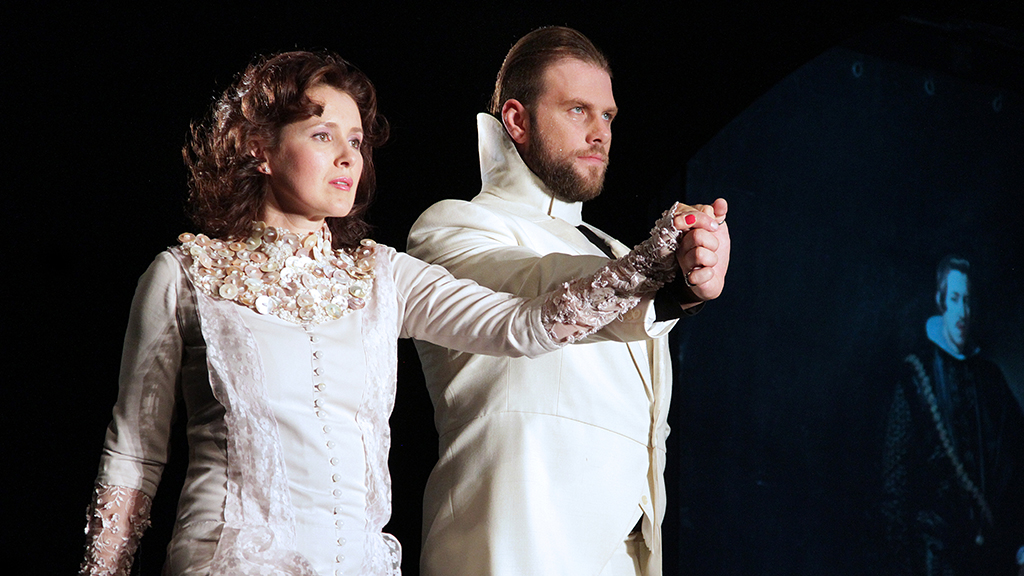
Photo: play “Captivated by Passions”
— Did the repertoire of the theatre change during the war?
— We play mainly those performances that were already in the repertoire. The only performance that we staged specifically in reaction to this moment is a highly symbolic one, based on Alexander Dovzhenko’s Ukraine in Flames. This is a commentary about the Great Patriotic War, but it is very in tune with the reality in Ukraine now. We have also finished working on a performance based on a play by the Romanian writer Mihail Sebastian, titled The Nameless Star.
We are also rehearsing the play Before the Rooster Crows by the Slovak playwright Ivan Bukovchan, about the Slovakian uprising of 1944. We took it on, among other reasons, because it works better translated into Ukrainian than into Russian. The play raises fundamental questions: the essence of personhood, morality and selflessness, and whether a person can overcome their ego in the most acute situations.
For now, we are translating our repertoire into Ukrainian. In October-November, I intend to start staging On Sunday I was digging grass, a story by Olga Kobylyanskaya. It is a tragic parable about love and jealousy. I think that three works in the Ukrainian dramatic canon stand as giants: Stolen Happiness by Ivan Franko, Stone Lord and this parable, although it is not drama in the strictest sense.
— Which performance will you be bringing to London this time?
— We are bringing Didier Caron’s French play False Note. Didier Caron is a modern French playwright, director and actor who runs one of the oldest and most popular theatres in Paris — “Michel”. The play False Note was written in 2017 — the premiere took place at the theatre festival in Avignon. We have been running this performance for almost two and a half years. We played it in all the large cities of Ukraine: in Kharkiv, Odessa, Dnipro and Lviv. It was shown with great success in Tel Aviv. I was also invited to stage this performance in Beijing with Chinese actors after the Chinese theatrical dignitaries saw False Note in Kyiv. However, due to coronavirus, everything has slowly stalled.

Photo: play “False Note”
“I was very impressed by this performance. The drama is twisted so sharply, the actors play at a such professional level that at some point you cannot even guess how the events will unfold, moreover — how this story will end…”, — Ambassador Extraordinary and Plenipotentiary of Ukraine to the State of Israel Mr. Genadiy Nedolenko.
— Please tell us about the plot of the play.
— The entirety of the action takes place in a huge concert hall in Geneva, where the maestro, a prominent German conductor, returns to the dressing room after a performance. An admirer then comes in to praise the conductor, or so it seems to him. A ceaseless conflict unfolds — where the maestro’s past is revealed; a past that he is trying to forget. Not a single one of the hundreds of thousands of spectators in the cities of Ukraine or in Tel Aviv was left unmoved.
“Mykhailo Reznikovych’s False Note is a very touching, spectacular and, from the point of view of professionalism, a masterfully staged performance! There are interesting directing decisions (in particular, in the finale) that I would love to have used in my production in Paris, but unfortunately, they did not occur to me at the time… By the way, as an actor, I understand that work with the actors here is accomplished at the highest level. Your performers ‘play from their gut’, which is difficult to achieve in France”, — Didier Caron.
We personally invited Didier Caron himself to our performance in Kyiv. He considered the production to have been very powerful. I added three more characters to the play, who were originally sort of allusions, and Caron praised this change. He spent a week in Kyiv, and I can say that we became friends.
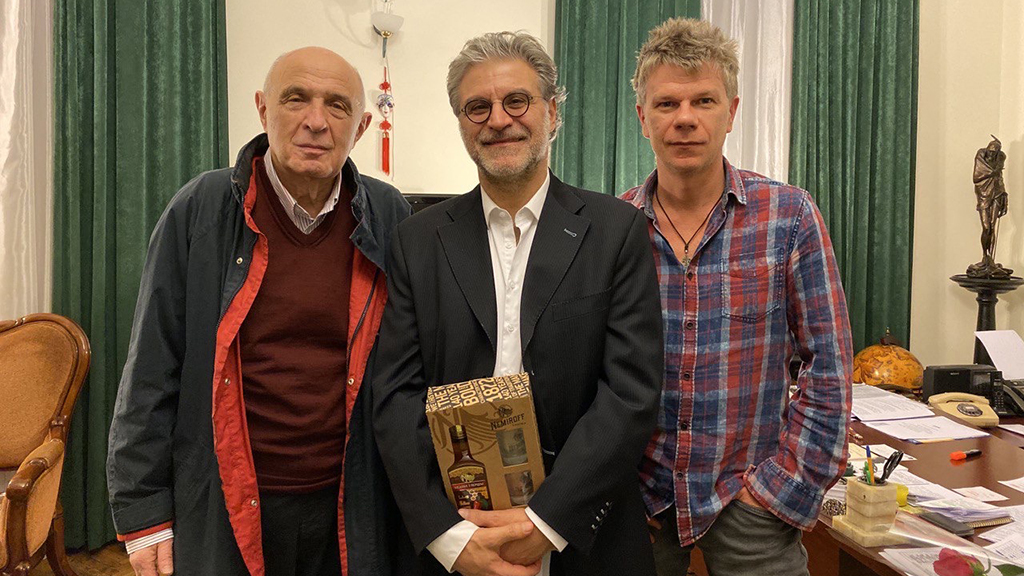
Mikhail Reznikovych, Didier Caron and Kirill Kashlikov, photo from the personal archive of Mikhail Reznikovych
— Last time you did a tour it was in a beautiful venue at the St. James Theatre — it’s practically the West End. This time you are coming to a concert hall: Logan Hall. What is the reason for your choice?
— Times have changed. Our tour now is a social project; we do not have the emotional nor financial resources to spend on considering other venues. Traveling to the performance in present conditions is, to put it mildly, difficult. However, the quality of our performance will not be diminished, despite all the challenges and circumstances.
— How many people will you be taking with you on tour? Based on your previous experience in 2015 — will they be actors, make-up artists, or dressers?
— Only 18 people will travel. Five of them are actors, the rest are those who help create the play. These are people who deal with lighting, sound, projection, props. There will not be much on the stage, but we have a lot of props. Here at Logan Hall, we will only get access to the stage from 11 o’clock in the morning, and even that is by special arrangement, and we have to perform the same evening. Therefore, in this short time, everyone must carry out their roles. The performance must certainly correspond to the standard expected of the Lesya Ukrainka Theatre.
— So even though you’re playing at Logan Hall, can we expect a West End level performance, as before?
— I expect no less.
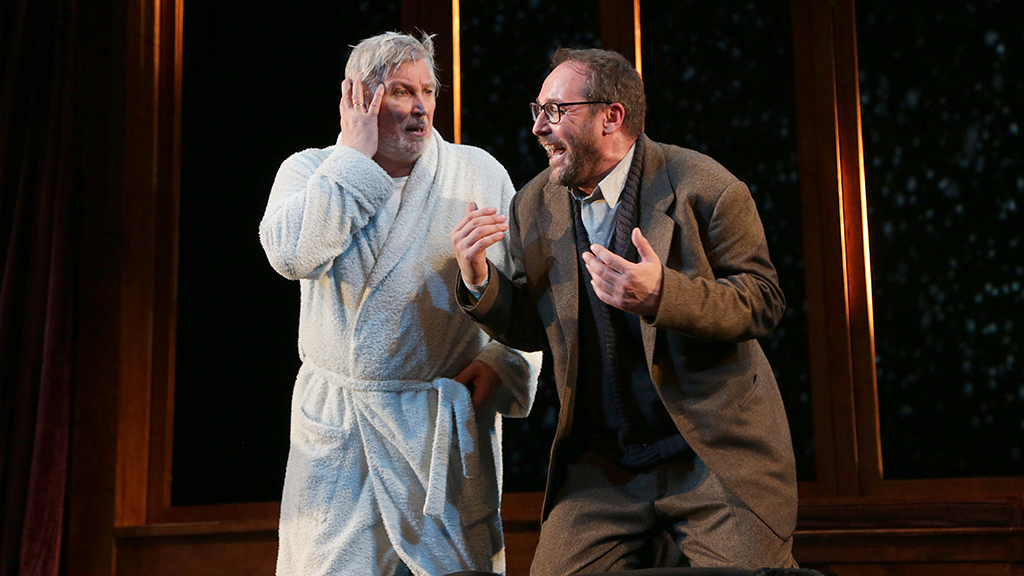
Photo: play “False Note”
— With what expectations does your Ukrainian troupe travel? How do they feel about touring abroad in time of war?
— The feeling is very positive; everyone wants to come. We have a company of almost 90 people, and those who remain will be very jealous. But it is what it is, nothing can be done. We hope that we will be able to come again soon and in full force.
— English directors constantly return to the works of Russian classics, which they often boldly interpret. You, on the contrary, are bringing a French work true to its original interpretation. Which approach do you prefer to put on?
— I staged Shakespeare, Schiller, Lope de Vega and Moliere. I never staged Brecht because I feel that he, with his method of alienation, is not my kind of playwright. Everyone should do what they feel most competent in.
— Speaking of this: initially you did not apply to study theatre, at first you pursued a degree in physics. How did you end up in theatre?
— I was always drawn to the theatre, but the vocation of a physicist was considered a venerable one, so my parents swayed me towards it. But inwardly I lived and breathed theatre. That is why, after three years, I left for Leningrad, and was accepted into Georgy Aleksandrovich Tovstonogov’s directing course. If it were not for his teaching, my ability would not be what it is today.
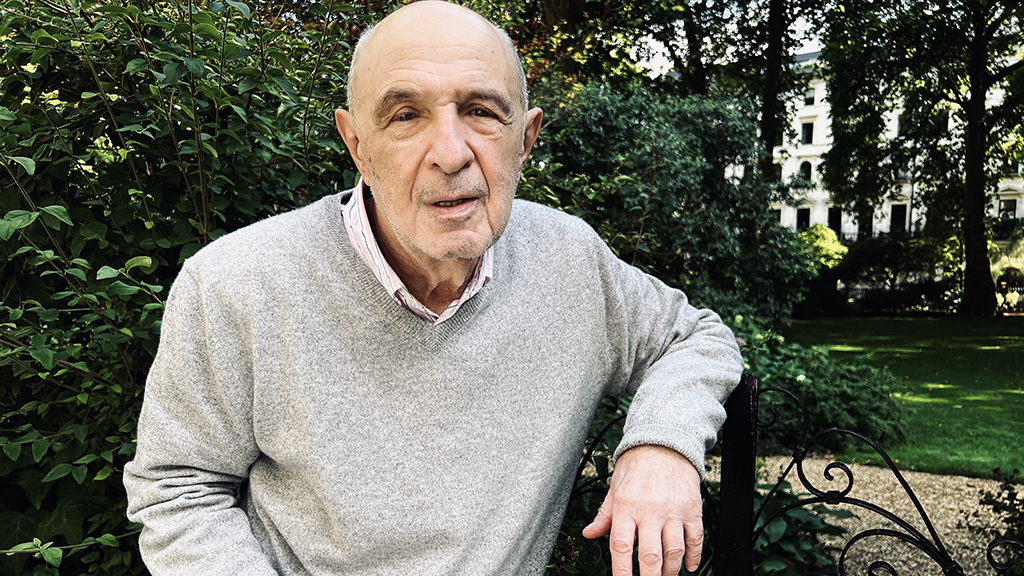
Photo: Afisha.London
— What are your memories of Tovstonogov? Was he difficult?
— He was brilliant as a director. He was wonderful as a teacher. He was harsh like every great artist. In the first lesson, he said: “There are a lot of bad directors even without you. My principle in the theatre is to push the one that is about to fall.” There were 18 of us at the beginning of the course, and only six graduated.
— Which British actors would you like to see in your productions?
— I don’t know the names, but all the main characters of the play Summer and Smoke (by Tennessee Williams, directed by Rebecca Frecknall) are very good. And as far as cinema is concerned… The actor from The Young Pope (Jude Law – ed.) is an exceptional artist.
— What do you expect from the November tour?
— May I speak openly? Despite the challenges of the hall, I expect it to be a success with the audience.
False Note
- November 26
- Logan Hall
- more information and tickets
Cover photo: play “False Note”
Read more:
“Patriots” will be shown in the West End
SUBSCRIBE
Receive our digest once a week with quality Russian events and articles



